Why are my orchid leaves turning yellow? Experts share 6 reasons your plant may be taking a turn for the worse
Wondering why your orchid's leaves are turning yellow? Horticultural experts share the most common reasons why your floral plant could be yellowing and how to stop it
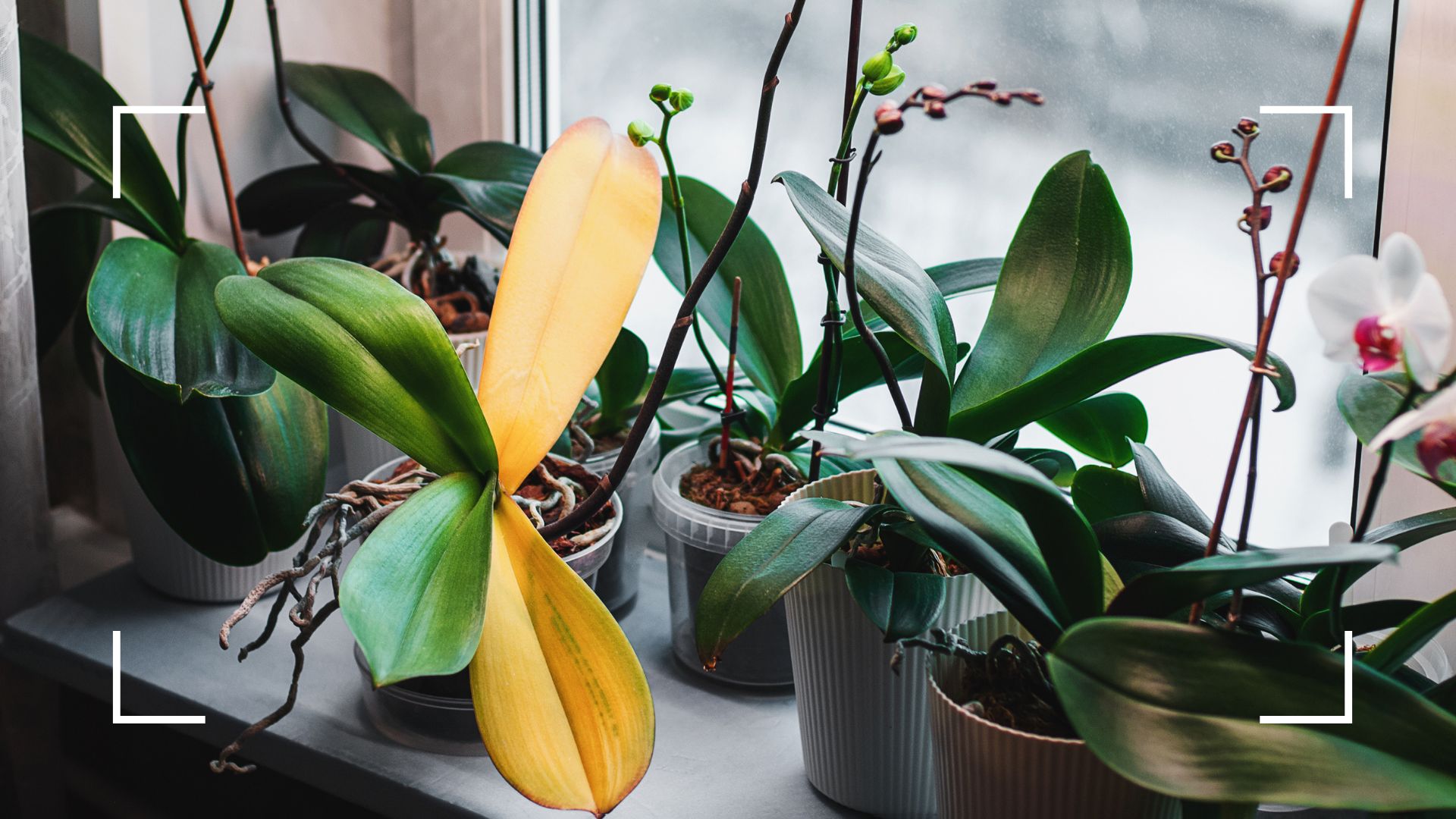

Keeping an orchid happy can be quite a challenge. So when you notice its leaves are beginning to yellow it's no surprise, but still, the panic can start to set in. But no need to fear, our team of plant experts shared their knowledge on why this might be happening – offering advice on how to fix it.
Knowing how to care for an orchid properly can seem like an impossible task, as one of the top hardest plants to keep alive their care needs are rather complex. Whether you know everything there is to know about caring for plants or not, orchids will test even the most seasoned plant owner.
So if you've noticed your orchid leaves are turning yellow it may be down to one of these common causes and conditions.
Why are my orchid leaves turning yellow?
There are several reasons your orchid leaves are turning yellow, many are similar to why peace lily leaves turn yellow too. Knowing what causes this damage to your plants is key to ensuring they thrive and you provide an environment and care plan for them to do so.
With the complex needs of orchids in mind, we turned to indoor plant experts to find out what commonly causes yellowing on orchid leaves.
1. Overwatering
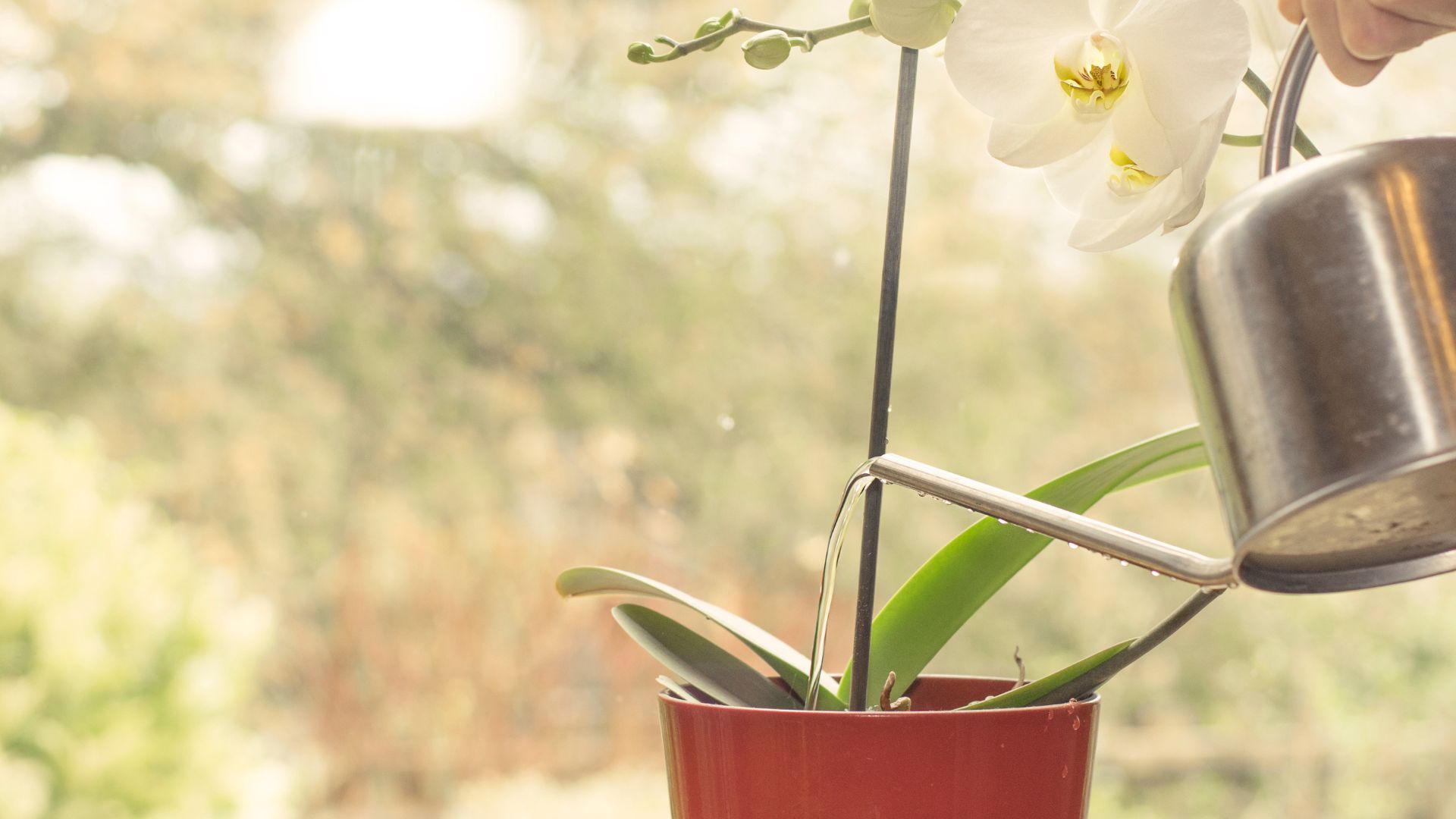
Similar to other houseplants, orchids are extremely sensitive to water levels whether that's under or overwatering. As one of the most common houseplant mistakes, not following a watering schedule can be the difference between life and death for your most fragile houseplants.
"One of the most common reasons for an orchid’s leaves to turn yellow is overwatering," says Fiona Jenkins, a professional gardener for FantasticGardeners. Too much water causes root rot which suffocates the root network."
Sign up to our free daily email for the latest royal and entertainment news, interesting opinion, expert advice on styling and beauty trends, and no-nonsense guides to the health and wellness questions you want answered.
So how often should you water an orchid? If the root network is suffocated then the leaves of the plant won't get the hydration and nutrients they need so they will begin to yellow until they eventually die.
2. Incorrect light levels
Tending and displaying an orchid is a great way to bring positive energy into your home, however, you can place the plant anywhere. Orchids have a particularly complex set of needs when it comes to their environments and one of these needs is sunlight.
"If your orchid leaves are turning yellow, it could be a sign of insufficient natural light," suggests Maryam Ghani, the brand manager at Haute Florist. "You need to place your orchids in a location with bright, indirect light as direct sunlight can damage the leaves."
If you've found yourself also wondering why your peace lily tips are turning brown then the chances are you've got your plants in a spot where there's too much direct sunlight.
3. Disease
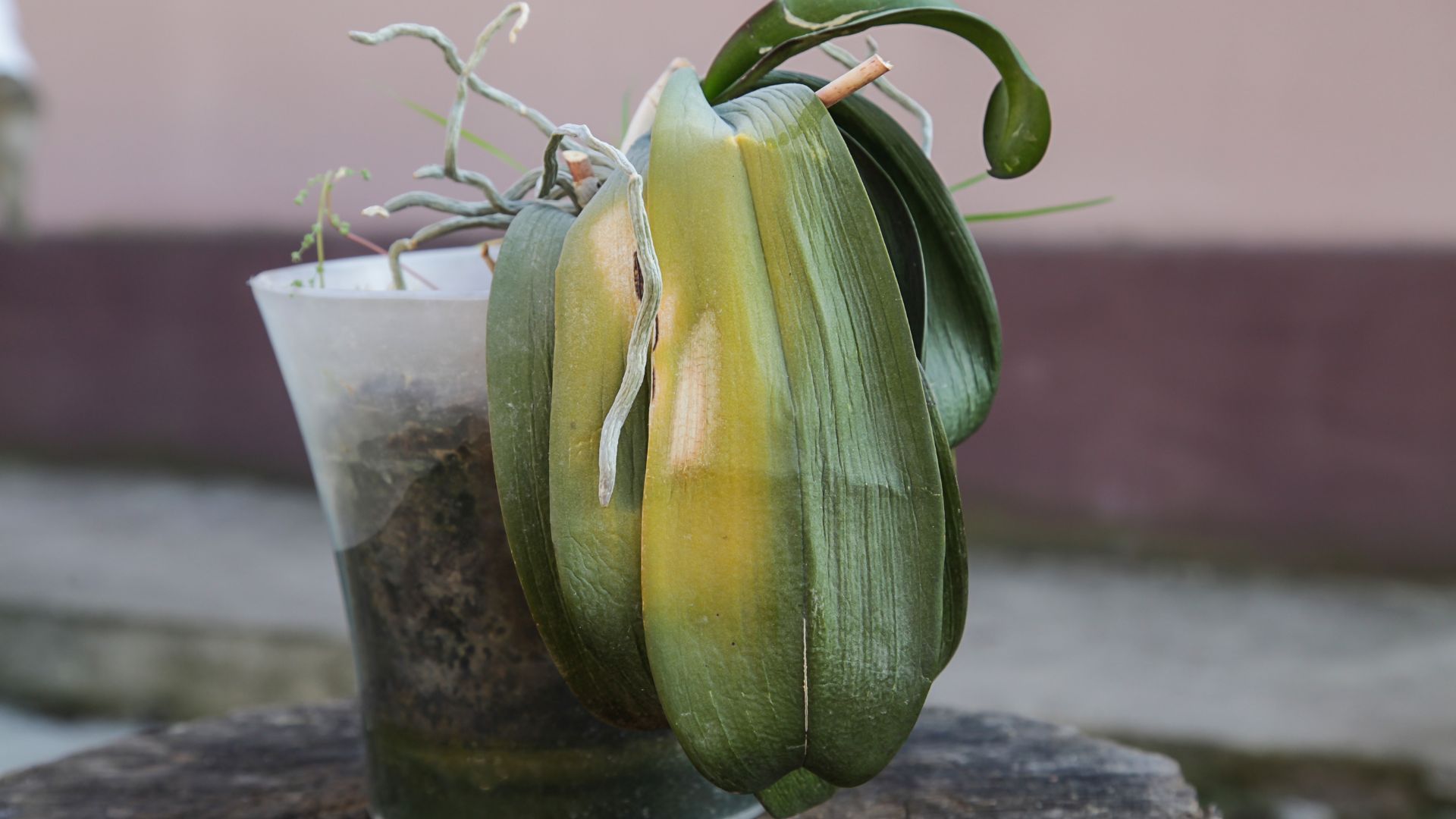
Unlike other plants, orchids are extremely prone to picking up diseases and suffering because of them. Fiona explains, "Orchids are prone to fungal infection when overwatered. Yellowing can develop on the underside of the leaves but often spreads until the entire leaf is yellow."
It's important to regularly check your orchid for any signs of disease or pests too, taking action quickly will mean your plant has a better chance at recovery.
You can check the plant over every time you carry out your care routine and clean the plant's leaves.
4. Nutrient deficiency
Nutrient deficiency is one of the most common reasons plants start to yellow and there's a simple way to figure out if this is what's causing the problem.
"If your orchid leaves are beginning to yellow at the tips and sides it could be a sign of nutrient deficiency particularly a lack of nitrogen or magnesium, or both," explains Fiona.
As is true with why bay tree leaves brown, a lack of these key nutrients will not only turn your orchid's leaves yellow but can also lead to the plant dying altogether. Fiona says that without sufficient quantities of these elements, the orchid will struggle to produce chlorophyll which is what keeps the leaves green and healthy.
5. Potting mix issues
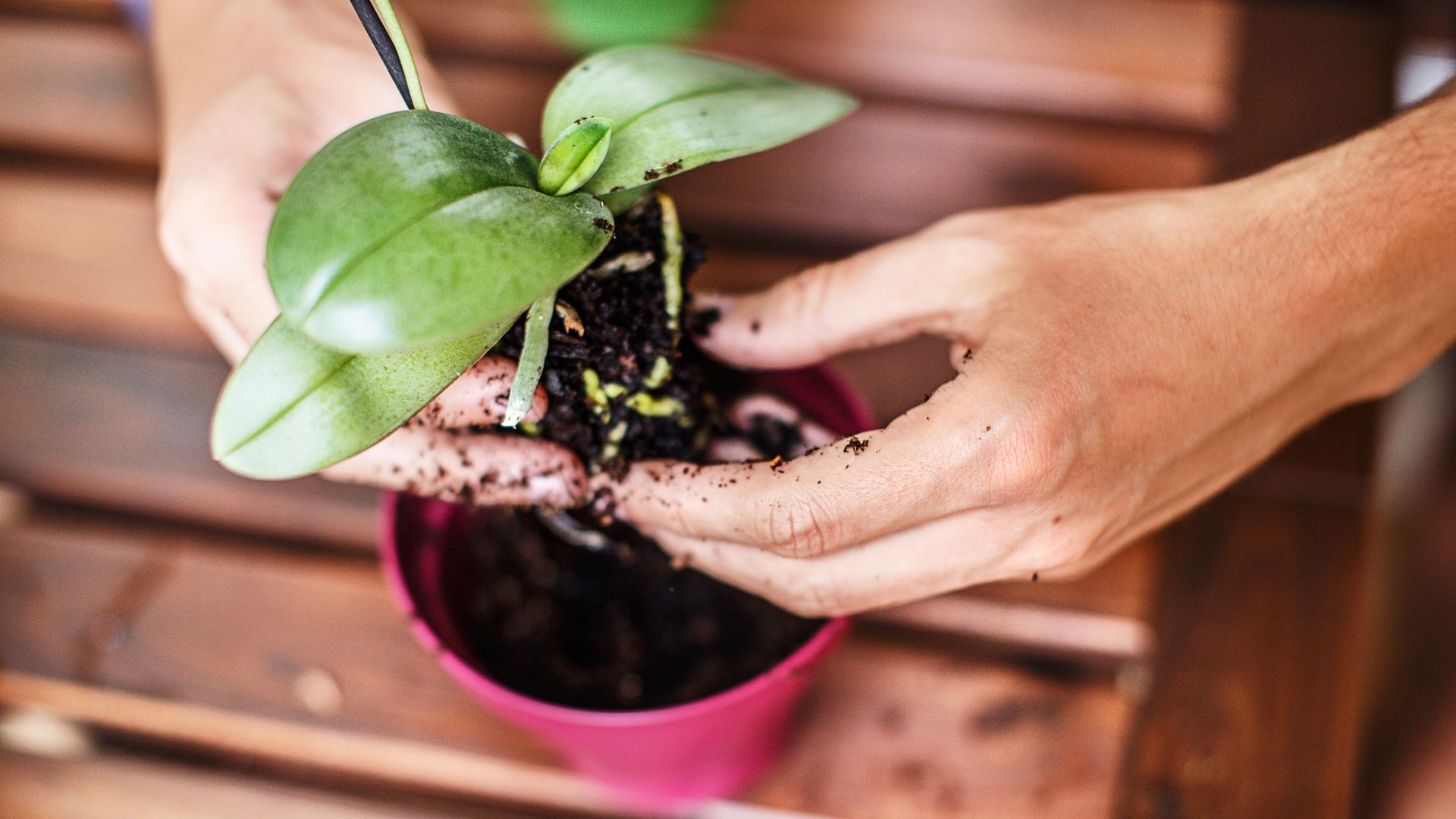
One of the most demanding parts of tending to an orchid is the pot and potting mix it needs to survive. Unlike other common easy houseplants to keep alive, an orchid needs a particular level of drainage and aeration due to its unique root network.
Maryam recommends using a well-aerated orchid potting mix to ensure the plant can completely drain whilst allowing for appropriate aeration of the roots. She says, "This can prevent issues like root rot and fungal infections, contributing to overall orchid health and vibrant leaves."
She also points out that the pH level in the potting mix can also cause yellowing leaves as orchids prefer slightly acidic to neutral pH levels.
If you suspect this is the cause of your orchid's yellowing Maryam suggests buying a pH testing kit and adjusting the soil accordingly to maintain the correct pH for your orchid. We found a highly recommended pH testing kit from Garden Tutor on Amazon for £12.89.
6. Shrivelled roots
As mentioned above, the roots of orchids are extremely sensitive and are more likely than not the root cause when it comes to yellowing leaves, pardon the pun.
Speaking to Kelly Dryer the plant doctor at Patch Plants, she says, "Orchid compost should be kept consistently, lightly moist. If the roots are too wet they may rot, and if they are left to dry out completely they will shrivel up.
This will prevent water and nutrients from getting to the leaves, causing them to yellow and die - repot the plant into an orchid-specific potting mix."
FAQ
How do I fix the yellow leaves on my orchid?
Unfortunately, there is no guarantee that the leaves will return to their original green colour, however knowing what caused them to yellow in the first place will give you a better chance of resurrecting the damaged leaf.
"To fix yellow leaves on an orchid, adjust the watering schedule to allow the roots to dry out between waterings. Provide adequate light for the plant, avoiding direct sunlight. Fertilise the orchid with a balanced fertiliser to address any nutrient deficiencies, and trim off any yellow leaves to encourage new growth," says Maryam.
There are some instances where the problemed leaf can be returned to green, such as when the plant is suffering from root rot or a fungal infection, however for other issues if you act quickly you have a better chance of turning things around.
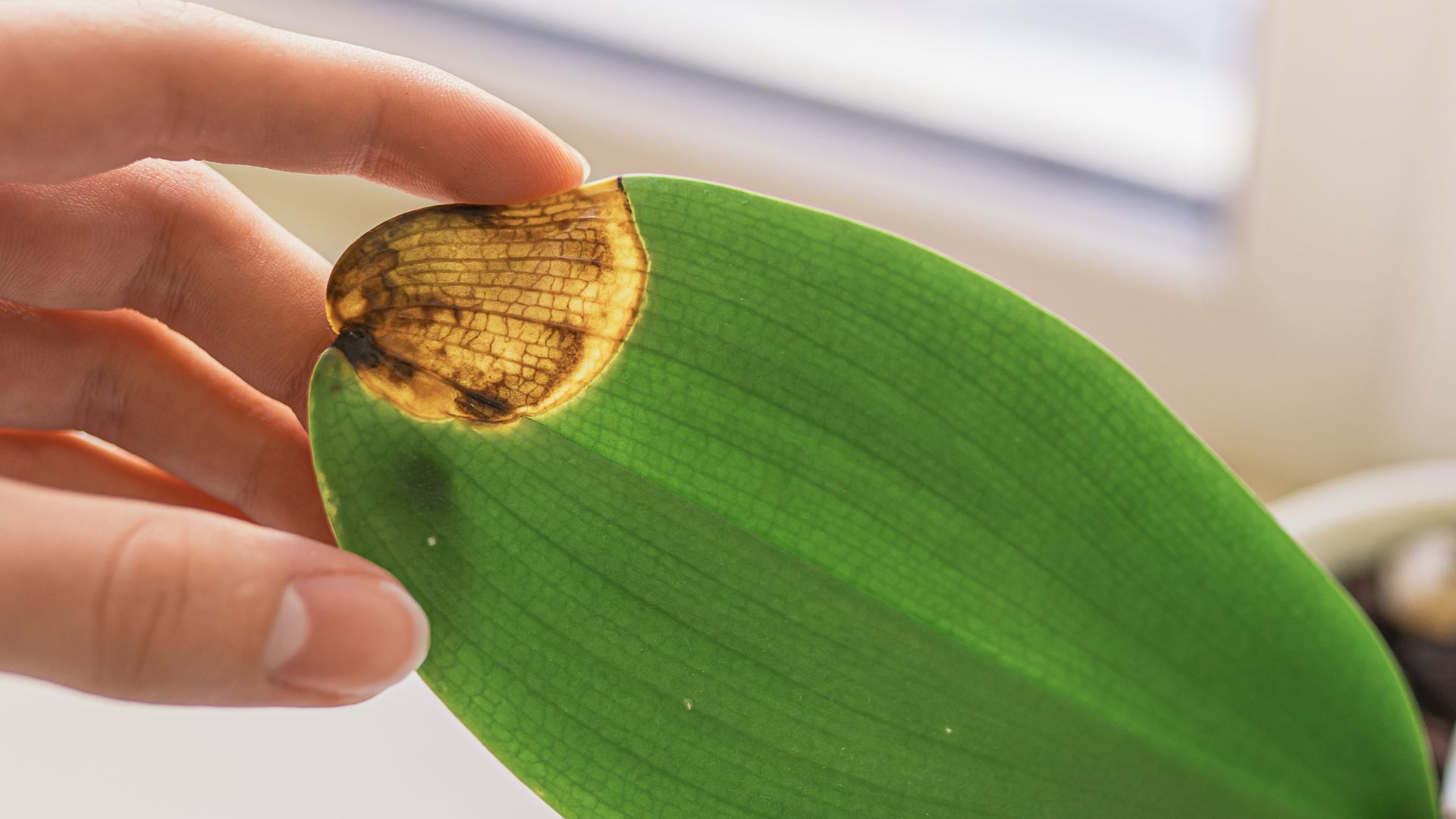
Should I cut off a yellow leaf on an orchid?
When you consider how few leaves orchids have it's no surprise you'll feel a reluctance to start cutting them off, even when they go yellow. Unlike other houseplants though, cutting off an orchid's leaves depends on why they've gone yellow.
"There are occasions when cutting off the yellow leaves of an orchid is recommended," says Fiona. "If the plant has been overwatered, if it’s suffering from root rot and if it has a fungal infection."
However, should the leaves have yellowed because of any of the other causes then pruning them is not advised. Fiona says this also includes naturally occurring leaf death, too low temperatures, too much direct sunlight and over-fertilising. She says, "All of these issues can be rectified and pruning off the yellow leaves is not necessary. Trimming the leaves could introduce an infection into the orchid which could kill it."
Taking all this advice into consideration, the key to prolonging your orchid's life keeping up with its regular maintenance. Maintaining the appropriate environment for your orchid, whether it's the watering schedule or potting mix, will ensure its leaves remain green and healthy for as long as possible.

Emily joined woman&home as a staff writer after finishing her MA in Magazine Journalism from City University in 2023. After writing various health and news content, she now specialises in lifestyle, covering unique cleaning hacks, gardening how-tos, and everything to help your houseplants thrive.